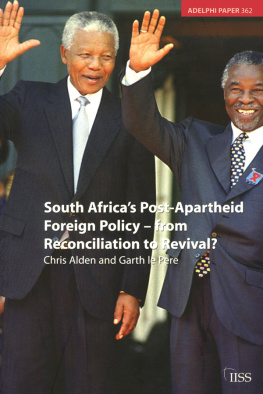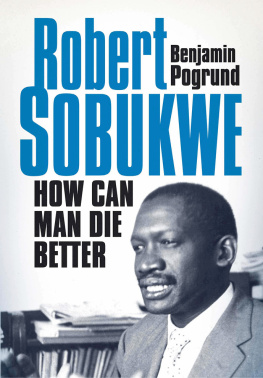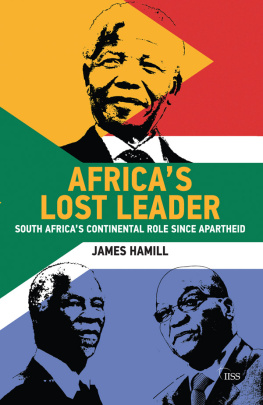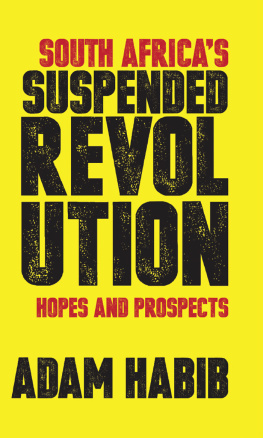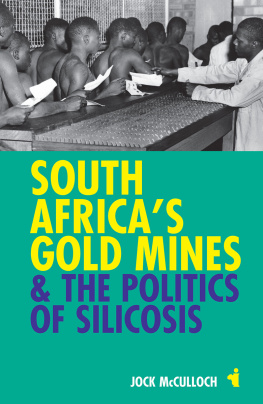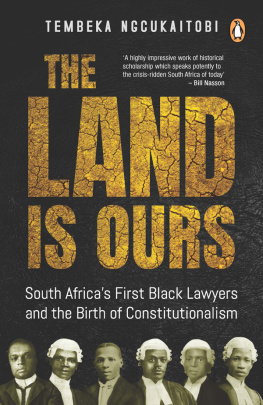First published in 2021 by
Berghahn Books
www.berghahnbooks.com
2021 Robert J. Gordon
All rights reserved. Except for the quotation of short passages for the purposes of criticism and review, no part of this book may be reproduced in any form or by any means, electronic or mechanical, including photocopying, recording, or any information storage and retrieval system now known or to be invented, without written permission of the publisher.
Library of Congress Cataloging-in-Publication Data
Names: Gordon, Robert J. (Robert James), 1947 author.
Title: South Africas Dreams: Ethnologists and Apartheid in Namibia / Robert J. Gordon.
Description: New York: Berghahn Books, 2021. | Includes bibliographical references and index.
Identifiers: LCCN 2020053932 (print) | LCCN 2020053933 (ebook) | ISBN 9781789209747 (hardback) | ISBN 9781789209754 (ebook)
Subjects: LCSH: ApartheidNamibia. | EthnologyPolitical aspectsNamibia. | NamibiaHistory19151946. | NamibiaHistory19461990. | NamibiaColonization.
Classification: LCC DT1556 .G67 2021 (print) | LCC DT1556 (ebook) | DDC 968.8103dc23
LC record available at https://lccn.loc.gov/2020053932
LC ebook record available at https://lccn.loc.gov/2020053933
British Library Cataloguing in Publication Data
A catalogue record for this book is available from the British Library
ISBN 978-1-78920-974-7 hardback
ISBN 978-1-78920-975-4 ebook
Acknowledgments
This volume is the product of a long-term research interest in what became known as Namibia. Apart from interviews with former military personnel, ethnologists, ordinary Namibians, and on-site visits to the former Operational Area and the former homelands, I was privileged to enjoy the hospitality of a number of archives and collections, especially the National Archives of Namibia and those of the Namibian Scientific Society in Windhoek, the Sam Cohen Library in Swakopmund, the South African National Archives, and the SANDF Documentation Center in Pretoria, the Special Collections at the universities of Cape Town, Witwatersrand, Stellenbosch, and Johannesburg, and at the University of South Africa. Bloemfontein offered perhaps the most surprisingly rich lode of material in the University of the Free States Institute for Contemporary History, now known as the Archive for Contemporary Affairs, and the downtown National Literature Museum.
In particular I am deeply indebted to a large number of friends, colleagues, students, informants, some-time collaborators, and strangers who contributed in various, often unanticipated ways to bringing this volume to fruition. This includes but is not limited to the following: Parfait Akana, Martha Akawa, Michael Akupa, Zeka Alberto, Heike Becker, Heike Behrend, William Beinart, Marion Berghahn, Gertrud Boden, Michael Bollig, Max Bolt, Pia Bombarella, Shirley Brooks, Kuno Budack, Marieta Buys, Jane Carruthers, the late Peter Carstens, Ben Carton, Allan Cooper, Andrew Corbett, Richard Dale, Tilman Dedering, Lieneke de Visser, Chris de Wet, Thea de Wet, Ute Dieckmann, Gregor Dobler, Saul Dubow, Andre du Pisani, Ben Eastman, Bob Edgar, the late Johann Els, Piet Erasmus, Casper Erichsen, Petro Estherhyse, Anthony Feinstein, Kileni Fernando, Deon Fourie, Matthia Fumanti, the late Alex Gaomab, Jan-Bart Gewald, Claudia Gastrow, Andre Goodrich, Hugh Gordon, Keith Gottschalk, Biddy Greene, Geoff Grey, Albert Grundlingh, Patricia Hayes, Jennifer Hays, Dag Henrichsen, Werner Hillebrecht, Bob Hitchcock, the late Josiah Hoebeb, Dianne Hubbard, Pierre Hugo, Crispin Inambao, Margie Jacobsohn, Deborah James, Jonathan Jansen, Fanie Jansen van Rensburg, Chris Jasparro, Hergen Junge, Preben Kaarsholm, Bennet Kangamu, Sarel Karsten, Peter Katjavivi, Nehoa Kautondokwa, Evert Kleynhans, Reinhart Kssler, Carol Kotze, Fabian Krautwald, Adam Kuper, Hubre Lambrecht, the late Brigitte Lau, Richard Lee, Ian Liebenberg, Gwen Lister, Louise Lombard, Jannie Loubser, the late Anton Lubowski, Stuart Marks, the late John Marshall, Mike McGovern, Henning Melber, Werner Menges, Giorgio Miescher, Udo Mishek, Dunbar Moodie, David Moore, Martin Murray, the late Melwa Musambachine, the late Mbulelo Mzimane, Ellen Namhila, Ghirmai Negesh, Coen Nel, Zed Ngavirue, Isak Niehaus, Francis Nyamnjoh, Willem Odendaal, Bryan OLinn, the late Nic Olivier, Dan OMeara, Robin Palmer, Wade Pendleton, the late Kobus Pienaar, Roberto Polli, Louwrens Pretorius, David Price, Ciraj Rassool, Steven Robins, Peter Rowny, Martin Ruehl, Hartmut Ruppel, Beatrice Sandelowsky, Chris Saunders, Carlien Scholtz, Carmel Schrire, Wolfgang Seibel, Joe Serekoane, John Sharp, Napandulwe Shiweda, Jeremy Silvester, Sian Sullivan, Julie Taylor, Kent Thorburn, Norman Tjombe, Johan van den Berg, Cees van der Waal, Piet van Rooyen, Chris van Vuuren, Steven van Wolputte, Ilana van Wyk, Dick Werbner, Wolfgang Werner, Andre Wessels, Louise White, Thomas Widlok, Polly Wiessner, Christian Williams, Christine Winter, and several who chose to remain anonymous. I sincerely apologize to those whom I have overlooked.
Special acknowledgment is due to those unsung heroes of research facilitation, the librarians, especially Lisa Brooks at the University of Vermont, who would willingly walk the extra mile. The manuscript has been much enriched by the deep reading and superb editing of Caroline Jeannerat, whose skills in these matters exceed any that I know of. To Marion Berghahn my heartfelt thanks, not only for publishing this book, but also for the way she has steadfastly expanded her list of anthropology and history books, and to my Berghahn editor, Tom Bonnington, the proverbial good shepherd, my gratitude.
The University of Vermonts (minor but critical) and the National Research Foundations munificence significantly shaped this research, while a semester-long fellowship at the Stellenbosch Institute for Advanced Study provided the ideal space to complete this manuscript, although the intellectual stimulation was such that I frequently had to rethink several of the ideas central to my argument.
Finally, Rinda, my long-suffering spouse, who deserves recognition for having to bear with my obsessions and having to read my drafts with a good red pen in hand, my thanks, gratitude, and love!
Some material has been published before, and I am grateful for permission to use some of it. This includes Collecting the Gatherers, in Worldly Provincialism: German Anthropology in the Age of Empire, edited by H. Glenn Penny and Matti Bunzl (Ann Arbor: University of Michigan Press, 2003); Tracks Which Cannot Be Covered: P. J. Schoeman and Public Intellectuals in Southern Africa, Historia 52, no. 1 (2007): 98126; How Good People Become Absurd: J. P. van S. Bruwer, the Making of Namibian Grand Apartheid and the Decline of Volkekunde, Journal of Southern African Studies 44, no. 1 (2018): 97113; and Protecting the Borders: Etiquette Manuals and Ethnology in the Erstwhile South African Defence Force, Anthropology Southern Africa 40, no. 3 (2017): 15771.



